In precision machining, CNC machines play a critical role in boosting productivity and ensuring high accuracy. However, improper machine operation can lead to serious issues such as damage to parts, tool breakage, or extended downtime. Below are the five most common CNC operation mistakes that technicians should be aware of to ensure safe and efficient production.
1. Skipping Pre-Operation Checks
One of the most frequent yet overlooked errors is failing to check the machine setup before starting a job. Without verifying workholding, tool condition, coordinate settings, and the G-code program, users may experience:
Broken tools from improper clamping
Loose or misaligned workpieces
Crashes due to incorrect zero points
Solution: Always verify all settings, simulate the machining path, and check tool paths on CAM software before actual machining.

2. Incorrect or Unoptimized G-code Programming
Many operational issues stem from poor or inaccurate G-code programming. Common mistakes include:
Using incorrect movement commands (G00 vs G01)
Not accounting for stock allowance
Improper speed/feed settings for materials
These issues can lead to product errors, tool wear, and excessive machine load.
Solution: Use reliable CAM software, run thorough simulations, and double-check G-code before execution.

3. Ignoring Preventive Maintenance
Running a machine continuously without regular maintenance is a major mistake. Over time, machines may experience:
Axis misalignment
Hydraulic/oil contamination
Loss of accuracy and repeatability
Solution: Implement a routine maintenance schedule, including cleaning, lubrication, oil filter replacement, checking spindle health, slideways, and calibration.
4. Letting Untrained Operators Use the Machine
Allowing untrained personnel to operate a CNC machine poses a high risk. Misunderstanding the control panel, M-codes, or safety protocols can lead to serious accidents.
Solution: Only allow trained and certified operators to run CNC machines. MMK Vietnam recommends structured CNC training programs or support from certified partners.

5. Ignoring Machine Alarms and Warnings
CNC machines often display early warning messages or error codes before a serious issue occurs. Unfortunately, some operators ignore these alerts or continue running the job — resulting in potential damage to motors, spindles, or drivers.
Solution: Always monitor machine alarms, stop the operation when needed, and consult technical manuals or maintenance teams when errors appear.
Conclusion
CNC machining requires precision, care, and professional knowledge. By recognizing and avoiding these common mistakes, manufacturers can maximize machine lifespan, ensure stable product quality, and minimize costly downtime.
Tags: avoid CNC crash, CNC machine damage, CNC machine failure causes, CNC machine safety, CNC operation mistakes, CNC operator training, CNC troubleshooting, common CNC errors, G-code programming mistakes, how to use CNC properly






